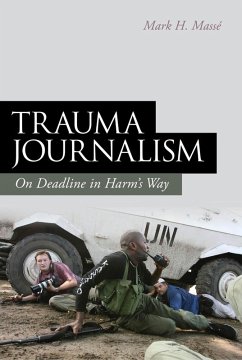The role of journalists in covering trauma and tragedy isn't new. Witnessing acts of violence, destruction and terror has long been the professional responsibility of countless print and broadcast reporters and photographers. But what is new is a growing awareness of the emotional consequences of such coverage on the victims, their families and loved ones, their communities, and on the journalists whose job it is to tell these stories. Trauma Journalism personalizes this movement with in-depth profiles of reporters, researchers and trauma experts engaged in an international effort to transform how the media work under the most difficult of conditions.
Through biographical sketches concerning several significant traumatic events (Oklahoma City bombing, Columbine school tragedy, 9/11, Iraq War, the South Asian tsunami, Hurricane Katrina), students and working reporters will gain insights into the critical components of contemporary journalism practices affecting news judgment, news gathering techniques, as well as legal and ethical issues. Trauma Journalism calls for the creation - through ongoing education - of a culture of caring among journalists worldwide.
Through biographical sketches concerning several significant traumatic events (Oklahoma City bombing, Columbine school tragedy, 9/11, Iraq War, the South Asian tsunami, Hurricane Katrina), students and working reporters will gain insights into the critical components of contemporary journalism practices affecting news judgment, news gathering techniques, as well as legal and ethical issues. Trauma Journalism calls for the creation - through ongoing education - of a culture of caring among journalists worldwide.









